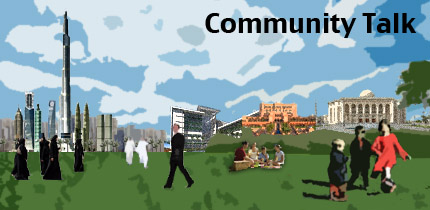“Let’s think of existential voids as wells, if “Why” got us in by wondering why we have a well in the first place and fell in trying to answer that question then naturally we’d think of “What’s the best way out?” and not “why get out”.

Feeling meaningless and hopelessness after closing the 5th book on meaning and 3rd lecture by prominent figures on YouTube titled “finding your purpose”. In despair, you ask yourself “What makes my existence an added value to the world? Why do I wake up every day?” while the recurrent thought of being a burden and an insignificant human amongst 7 billion has started to dig deep into your soul creating an existential void.
The pursuit of meaning takes us down many roads some of which are well-trodden roads of humanities with a one-way direction usually provided by society and culture, while others may take us down sharp arterial roads that can lead to labyrinths and existential voids.
Seeking meaning starts off with wondering why things happen the way that they do, why do they happen to certain people, why does life lack meaning, and why, why, why. “Why” is the starting point, but it cannot be the only link to finding the answer, especially when the same questions we are asking to get out of these voids are the ones that got us in.
To explain the thought, let’s think of this void as a well. If “why” got us in it by wondering why we have a well in the first place, and fell deeper in trying to answer that question, then naturally, we’d think of “what’s the best way out?” and not “why get out”. So in this situation, the right question is, “what now?”. It’s important to take action as the first step of lifting ourselves out of the hopelessness of existential voids. Life can be chaotic and absurd at times, but “What can I do about it?” is the 1st question out. We are constantly asked the wrong question when it comes to living a life of meaning, i.e. “What have you done for the world?”, “What have you done for society?”. These questions, although simplistic, are shallow questions that drag us deeper into the sense of worthlessness.
The way out must come from within first, so answering the 1st question “What now?” would be by self-betterment, and down this road, we find bits and parts of meaning through conversations, achievements, experiences, and so on. The media today has played a major role in undermining the value of small achievements. Its constant focus on major and groundbreaking achievements led people to believe that anything less is unworthy further pushing the idea of being insignificant.
Maintaining oneself by self-care, education, work, and refraining from unnecessary evil/harm is a big step towards a meaningful life; you are maintaining its structure and playing a vital rule in it by intentional productivity that can answer both the “why?” and the “what?” on the long run. In “Candide” by Voltaire he states the importance of cultivating your own garden first:
“- ‘We must take care of our garden.’ said Candide
– ‘You are in the right,’ said Pangloss. ‘For when man was put into the garden of Eden, it was with an intent to dress: and this proves that man was not born to be idle.’
– ‘Work then without disputing,’ said Martin; ‘it is the only way to render life supportable.’”
Therefore, while searching for meaning and rearranging fundamentals and breaking down truths that leave us with more uncertainty than certainty, balancing both the “Whys” and “What to do’s” are essential factors in our guide to getting out of the wells of thought existential voids create; unlike Raskolnikov, the protagonist in Crime and Punishment by Dostoyevsky, our occupation cannot be to think only.
Sign up to Sail Newsletter
Never miss another article!
Thank you for subscribing.
Something went wrong.

Loved your article